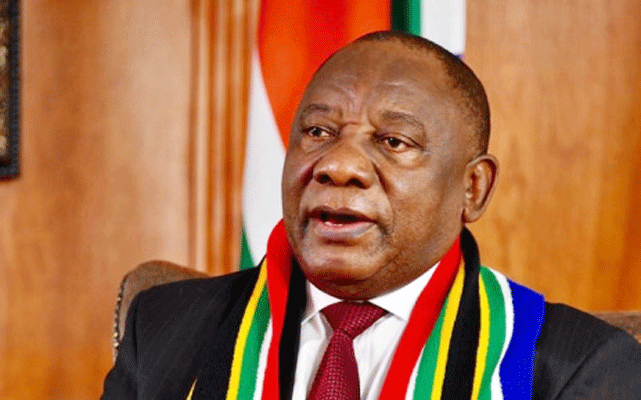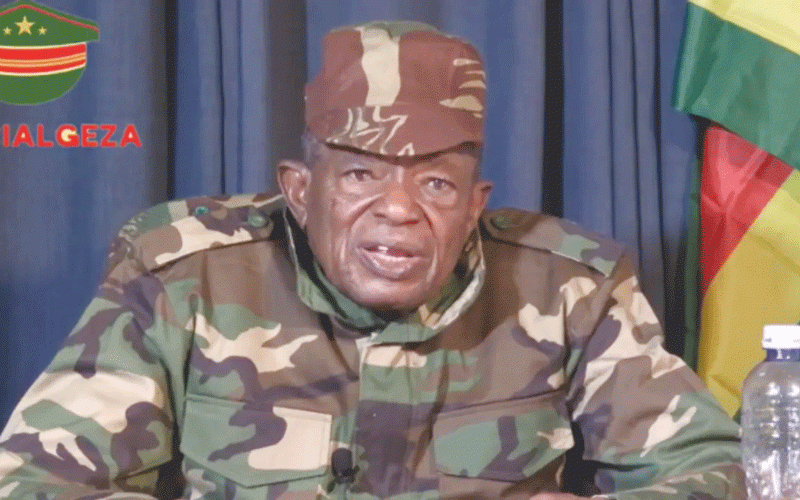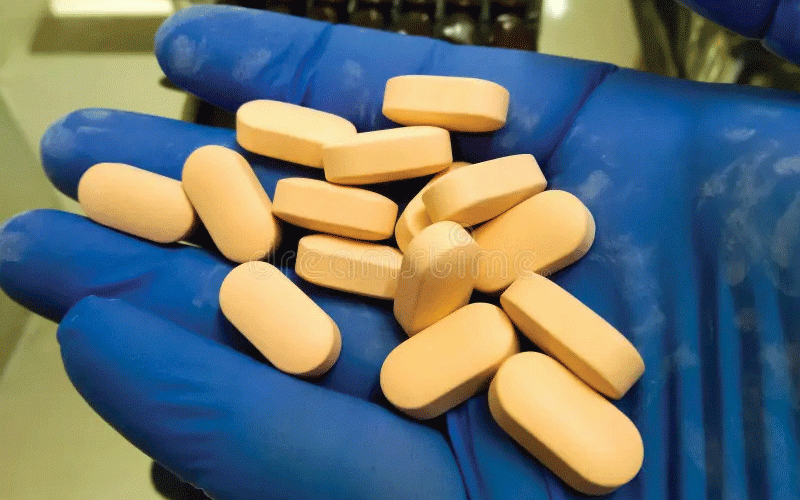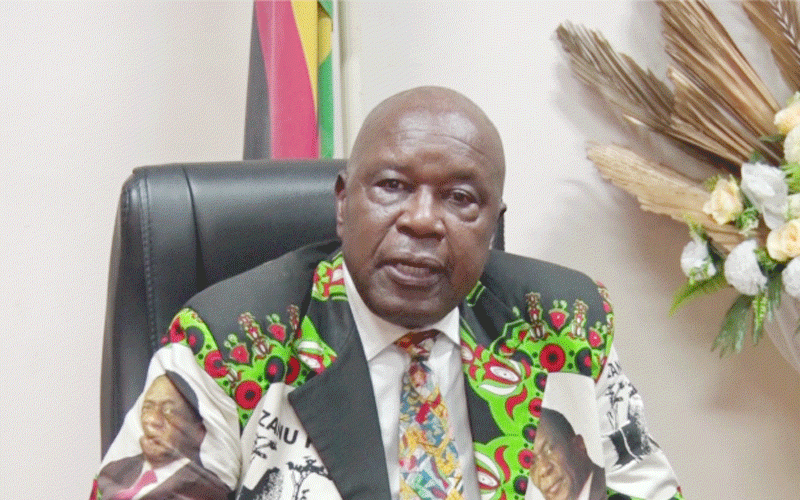
news in depth:BY MOSES MATENGA
When the Zimbabwean media started exposing Covid-19 related corruption mostly linked to the procurement of personal protection and other equipment, South African opposition politicians went ballistic about it.
Economic Freedom Fighters leader, Julius Malema, said of the emerging corruption in Zimbabwe: “We applaud the fight against corruption and looting of public funds going on in Zimbabwe.
“It is cruel and evil.”
Former head of the Democratic Alliance, Mmusi Maimane, weighed in and also condemned the procurement graft.
But, several months down the line, there is also an uproar in South Africa over rampant corruption, again as it particularly relates to procurement.
South African President Cyril Ramaphosa pitched that concern at the highest level just recently as his country took an unenviable fifth position among the countries worst affected by Covid-19, with more than 400 000 cases and over 6 000 deaths.
“More so than at any other time, corruption puts our lives at risk,” Ramaphosa said in a national address.
- Chamisa under fire over US$120K donation
- Mavhunga puts DeMbare into Chibuku quarterfinals
- Pension funds bet on Cabora Bassa oilfields
- Councils defy govt fire tender directive
Keep Reading
Zimbabwe has easily hogged the limelight where Covid-19 related graft is concerned.
Breeding ground But a survey of the country, together with South Africa and Zambia, by The Standard, working in collaboration with Information for Development Trust (IDT), a non-profit organisation promoting access to information on governance, and a Zambian journalist showed that the problem of corruption is widespread in the region.
Declaring Covid-19 a national emergency in southern African was hailed for its potential to bolster the respective countries’ fight against the marauding coronavirus.
However, it also presented opportunities for abuse of office and criminal manipulation of the procurement and distribution of Covid-19 materials.
The accompanying lockdown in Zimbabwe — pretty the same as elsewhere in southern Africa — has exposed a governance deficit, according to Muchaneta Mundopa, the Transparency International (Zimbabwe) TIZ executive director.
“The Covid-19 pandemic worsened governance challenges in Zimbabwe, especially in the wake of the national lockdown regulations, which limited the oversight role of Parliament,” Mundopa said.
“Parliament was not sitting during the greater part of the lockdown and this negatively affected the legislature’s ability to effectively discharge its constitutionally-mandated roles of oversight, legislation and representation.
“The government came up with appropriation and finance decisions without consulting Parliament,” she added. She said the relaxation of public procurement rules and procedures to cater for the Covid-19 emergency also encouraged corrupt individuals and institutions to abuse funds meant to contain the pandemic.
The move was meant to mitigate the effects of the pandemic, she said, only that “some people saw it as an opportunity to loot public funds under the emergency procurement arrangement”.
It was bad enough that Parliament became constrained, but civil society could not adequately play its watchdog role too, she added.
Governance expert Frank Mpahlo said the pandemic posed a “double threat”.
“There is a humanitarian emergency, which is being capitalised on by government officials, politicians and private individuals alike to enrich themselves through the abuse of resources meant for the Covid-19 response,” Mpahlo said.
The corruption has taken different forms, Mpahlo added, among them “cutting corners” in procurement and inflating of prices and budgets. It has also involved outright misrepresentation of their identity by prospective suppliers, the political manipulation of tenders, involvement of shady briefcase companies, supply of substandard items, false claims of cures and the deliberate withholding of information on donations.
The Zambian script Zambian international freelance journalist Charles Mafa says the government kept a multi-million Global Fund donation away from the public.
“According to a leaked notice from the Global Fund, Zambia received US$6,68 million on April 17 to be channelled to fight against Covid-19,” said Mafa, but it has reportedly failed to declare it publicly.
The Zambian media has not reported on local corruption as extensively as Zimbabwean journalists but, according to Mafa, procurement and distribution of Covid-19 items has been marred by political manipulation.
“The country’s coronavirus response has exposed disturbing political patterns.
“The ruling Patriotic Front was the culprit, turning the coronavirus fight into a campaign platform through the distribution of face masks branded in party colours and symbols,” said Mafa.
There was a public outcry in Zambia over the reported diversion of donated equipment to the market for sale by politically connected people, he added.
The Zambian Watchdog, an online news publication, claimed recently that the Health minister, Chitalu Chilufya, had abused his office by ordering the purchase of chloroquine worth US$9 million purportedly to treat Covid-19.
The World Health Organisation insists that there is no cure for Covid-19 yet, and chloroquine, mostly used to treat malaria, has been dismissed as a cure for the coronavirus.
Chilufya has also been accused of lying that he had tested positive for Covid-19 at a time the Zambian anti-corruption commission wanted to arrest him for the alleged criminal sale of residential stands to a company. He has since appeared in court over the allegations.
Worried Ramaphosa South Africa recently announced a record-breaking US$26 billion economic relief package after ordering a lockdown, but the financial plan has been marred by Covid-19 centred concerns of corruption.
Ramaphosa has already ordered intensive investigations into claims that public officials and private companies were looting money meant to protect the country’s 57 million people from Covid-19.
Ramaphosa acknowledged that the graft had negatively affected roll-outs of food, personal protection equipment and grants for laid-off employees, estimated to have shot up to about three million in the first month of South Africa’s lockdown, according to a national income dynamics study done by five local universities, said African Press (AP).
According to AP, “South Africa is seen as the best-prepared of any country in sub-Saharan Africa for Covid-19, but years of rampant corruption have weakened institutions, including the health system.”
An estimated US$2,3 billion is lost in South Africa’s health care system because of fraud, abuse and waste, added the Associated Press.
The South African Special Investigating Unit spokesperson, Kaizer Kganyago, recently indicated that his agency was investigating more than 20 cases of corruption cases related to Covid-19 relief money.
The AP said “overpricing scams for badly needed supplies are on the rise”, and named Sicuro Safety and Hennox Supplies companies as having been fined for inflating the price of face masks by up to 900 percent.
Another company, Royal Bhaca, reportedly overpriced surgical masks by more than 400% and sanitisers by almost 200%.
The South African government suspended several officials accused of having inflated prices of Covid-19 equipment and blankets worth more than US$2 million in KwaZulu-Natal province while in the Eastern Cape, there has been an outcry over the overpricing of motorbikes meant to fight the virus.
Fake charity organisations have also been reported to be sprouting in South Africa so as to seemingly take advantage of Covid-19 supplies.
Zimbabwe’s Draxgate In Zimbabwe, the most memorable scene in the corruption script was the overnight arrest, subsequent appearance in court and dismissal from his ministerial post of ex-Health minister Obadiah Moyo, a man considered a protégé of President Emmerson Mnangagwa.
Numerous dramatic events built up to Moyo’s fall, courtesy of the mainstream and microblogging social media, which exposed shocking cases of overpricing, tender manipulation, fake philanthropy and corporate lies.
Just before the media outed the corruption, a significant development took place.
Agnes Mahomva, then secretary in the ministry of health and head of the Covid-19 taskforce, was mysteriously moved to the Office of the President and Cabinet, now considered a “presidential pool” where “indispensable but undesirable” officials are taken.
There was speculation that Mahomva’s transfer was “a demotion by promotion” for reportedly disagreeing with powerful politicians seeking to fix tenders.
That speculation received a boost when the media reported on hitherto unknown companies, Drax International and Drax Consult SAGL fronted by an alleged serial con-star, Delish Nguwaya, got a US$40 million-plus tender to supply personal protective equipment on false pretences Many things seemed wrong with that.
Investigations showed that Nguwaya lied that the companies had the capacity to produce the equipment, when they were only consultants whose real addresses had been falsified.
It was also revealed that prices for the equipment had been steeply inflated for an overnight profit.
There was also no transparency in the awarding of contracts to Nguwaya, giving rise to the suspicion that the tenders were manipulated by politicians.
And Nguwaya is a close friend of one of the president’s sons, Collins, who was rumoured — without proof so far — to be hurriedly setting up a Covid-19 health facility to sell an assortment of coronavirus-related equipment.
Prior to that, Nguwaya had appeared at State House together with the president who hailed him, without prior security checks, for making a US$60 million donation to Zimbabwe, but the donation turned out to be fake.
Nguwaya was arrested, together with some executives from the National Pharmaceutical Company, a state-owned entity that facilitated the contracts, as pressure mounted on the government to take action.
He has been granted bail on allegations of misrepresentation of the identity and corporate mandate of Drax and, therefore, prejudicing the state.
Ex-minister Moyo has appeared in court and is out on bail too, after being charged with abusing his office by forcing payment to Nguwaya, whose equipment had been held at the Robert Gabriel Mugabe International Airport.
A local survey by The Standard and IDT discovered that briefcase companies were mushrooming, apparently to swoop on the millions of dollars availed to fight Covid-19.
Most of the firms, it emerged, were linked to government officials, some of who were already converting their houses or apartments into Covid-19 quarantine centres.
Government also confirmed the rot, saying it was working on dealing with unscrupulous officials and connected individuals benefiting from the Covid-19 pandemic.
“Government will leave no stone unturned in ensuring that such unscrupulous business elements are sifted out,” Information minister Monica Mutsvangwa said recently.
Cabinet recently deliberated the matter of the mushrooming briefcase companies involved in the tendering processes for Covid-19 equipment and threatened a thorough probe to ascertain the faces behind the said firms.
It emerged that a named company had bought test kits way before the government gave a directive for companies to test their workers, raising suspicion the business entity could have been working with government officials.
Way forward Governance stakeholders are not lost on what must be done to stem the procurement-related corruption.
Zimbabwe’s Special Anti-Corruption Unit head, Thabani Mpofu, said they were looking into cases of mushrooming briefcase companies.
The Procurement Regulatory Authority of Zimbabwe CEO Nyasha Chizu said his department was keeping a close eye on Covid-19 tendering and promised prosecution of violators.
“We will push the Ministry (of Health and Child Care), which is supposed to be ensuring that these things are being complied with and as a regulator, we are going to be doing post-tender award reviews to see if the processes were followed and whether the Procurement Act was complied with,” said Chizu.
TIZ’s Mundopa recommended that the government must set up an e-procurement system to promote transparency and accountability while suitors must be thoroughly vetted and periodic audits of tenders conducted.
“TIZ recommends that while emergency procedures are needed, they must remain publicly accountable,” she added.
“Government must consider adopting open contracting to enhance transparency and accountability in public procurement.”
Said Mpahlo: “Donors should channel funding through existing systems that apply anti-corruption best practices, in addition to strengthening the role of civil society and communities to play a monitoring role in public health outcomes, systems and expenditure.”









